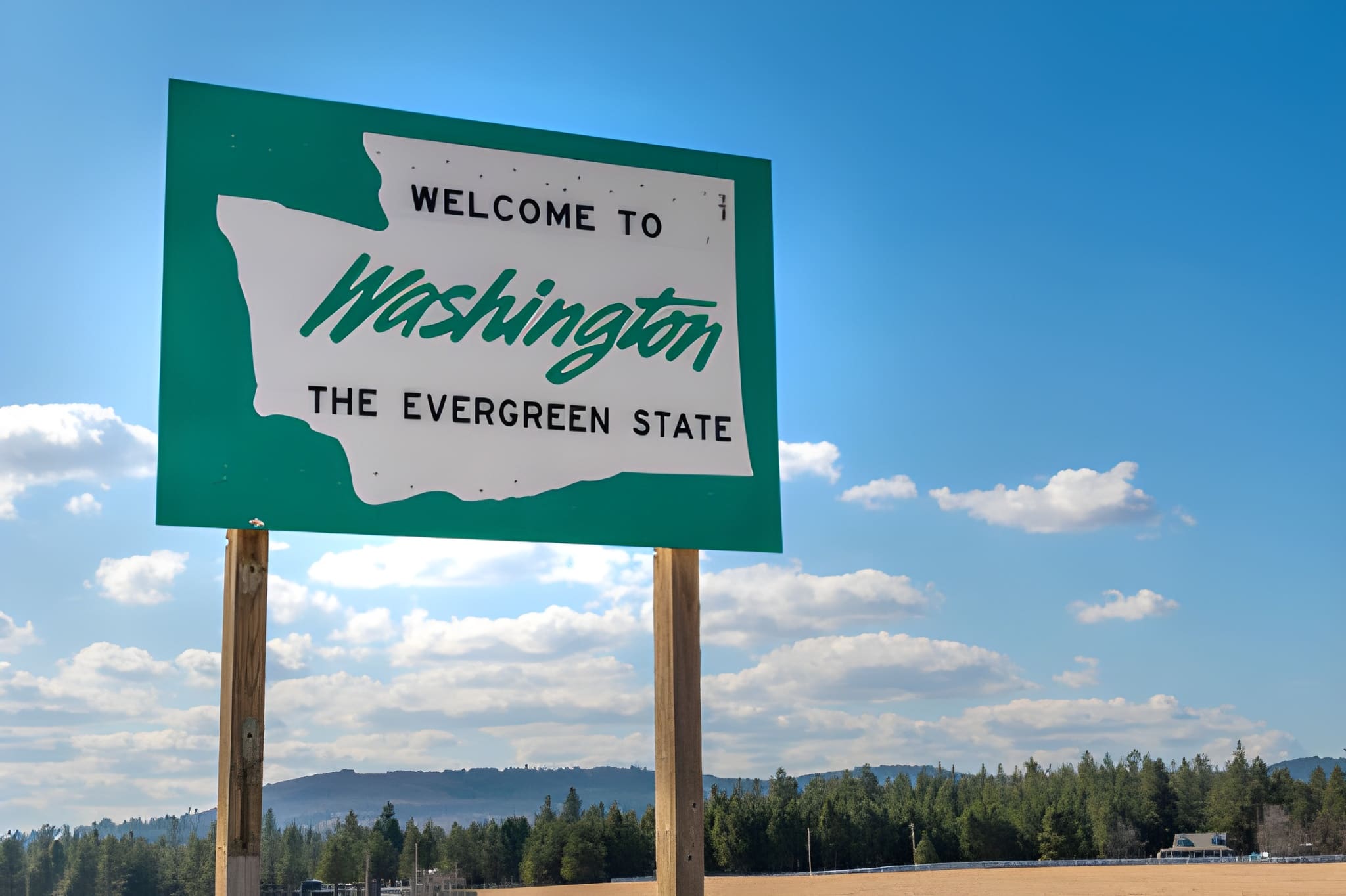In north Texas, many residents have a weekly commute-style ritual, and Nona Dean is one of them. But it’s not work-related.
She and her husband leave their Denton home, cross the Red River into Oklahoma and head to WinStar World Casino, just one mile into the state, ready to take their chances on slot machines.
“We just do it for fun,” she said. “We don’t do anything else [for entertainment]. This is our fun.”
But if she had the chance to gamble at a casino in Texas, where tax dollars could go to funding state needs such as education, she’d do it in a heartbeat, she said.
“Our money would stay in Texas,” she said.
She and many other Texans drive to neighboring states — Oklahoma, Louisiana, New Mexico — and spend billions of dollars a year playing machines and tables and dabbling in off-track betting.
State lawmakers have a proposal on the table to consider allowing casinos in Texas and keep those gamblers, and that money, in the state.
Sen. Rodney Ellis, D-Houston, has filed a bill to let Texans vote on allowing a limited number of legal gambling sites in Texas — slot machines at horse and greyhound racetracks, and Las Vegas-style casinos in urban areas, on Indian tribal land and in tourist destinations on islands in the Gulf of Mexico.
“Clearly we need the money,” Ellis has said. “The people deserve the right to choose whether they want to move forward with an option to bring back the jobs and money to Texas we are giving away to other states.
“If the Legislature will give the people of Texas a chance to vote, clearly the people of Texas are ready for it.”
But like similar proposals in past legislative sessions, the bill to make casino gambling legal in Texas may not have the odds in its favor.
Gambling opponents have long argued that casinos won’t generate the long-term revenue lawmakers hope for. They fear that even if limited, the number of casinos allowed would quickly grow. And they worry that the bulk of the revenue generated at casinos would come from local residents who can least afford it — not from out-of-town tourists.
“There are folks walking around the Capitol saying, ‘Let folks decide,'” said Rob Kohler, a consultant with the Christian Life Commission, which is part of the Baptist General Convention of Texas. “That’s the oldest trick around here. Folks do decide — in the primary and general elections.
“If it was so popular and everybody wanted it in Texas, people would be running on that issue,” he said. “But they aren’t.”
Economic impact
Let Texans Decide, which supports casinos in Texas, was formed last year to encourage lawmakers to put the issue before Texas voters. Organizers recruited former state Sen. John Montford, a Democrat who went on to be chancellor of the Texas Tech University System and work for companies including General Motors and Southwestern Bell, to help.
“Texas is hemorrhaging money in the billions to our neighboring states,” said Montford, a spokesman for the group. “We are surrounded.”
Ellis’ bill, he said, is a starting point.
The goal, Montford said, is to let the bill evolve and develop as lawmakers work together to create a proposal the conservative 2013 Legislature can approve and put before voters. Especially as studies report that 90 percent of the customers at casinos on the Texas-Oklahoma border are Texans.
“We think the people of Texas are smart enough and ready to decide this issue,” he said.
According to the group:
Adding casinos to racetracks in Texas could create 75,000 jobs, show $8.5 billion in statewide economic growth and benefit 40 industries including agriculture, construction and tourism.
Casinos at Texas racetracks could generate $1 billion in taxes each year.
Texans already spend more than $2.5 billion a year at casinos in states near Texas.
Dozens of chambers of commerce, including Arlington’s, and other groups have thrown their support behind giving voters a chance to decide whether to bring casinos to this state.
The group has started a petition that has drawn more than 5,300 signatures to encourage lawmakers to let Texans vote on the issue.
Montford said there’s a reason a casino bill hasn’t passed before, despite bills being filed nearly every session for decades.
“The out-of-state interests have put so much money in Texas politics that they have been able to stop it,” he said. “They will fight it. They don’t want anything to change in Texas because the people of Texas are funding a whole lot in Oklahoma, Louisiana and New Mexico.
“My hat’s off to them,” he said. “They are outsmarting us. And they will put a whole bunch of money into this to make sure nothing changes.”
Opposition
Kohler has been meeting with newly elected members of the Legislature recently, hoping to talk to them about what he sees as perils of expanding gambling in Texas.
Supporters used the same arguments — generally, a large economic windfall for Texas — to persuade legislators to approve the Texas lottery and pari-mutuel wagering. But those opportunities haven’t been enough for gambling supporters, he said, and they want more.
“This is not about economic development,” Kohler said. “It’s sold as that, but it’s not. We’ve been tricked before with pari-mutuel wagering and the lottery.”
Kohler said that casinos in Texas simply won’t generate the taxes projected by supporters and that the majority of money will come from people living near a casino. And if gambling is expanded in Texas, he said, it will quickly grow because of the Indian Gaming Regulatory Act.
But he said he doesn’t expect the proposal to gain any traction.
“At the end of the day, every two years, we … see special-interest folks trying to make this an issue,” he said. “There’s not a will there — not in the House and not in the Senate.”
Others oppose the move as well.
Amid calls for new state revenue, “some big spenders just happen to have a ready-made solution, a magic moneymaking elixir: expanded gambling. And some conservatives are foolishly lapping it up,” Michael Quinn Sullivan, president and CEO of Empower Texans, an Austin-based conservative group, said last year. “Let’s be clear: Texans are not under-taxed; our problem is that tax dollars are often poorly spent.
“The emphasis in 2013 must rest on fixing past budget gimmicks, weeding out inefficient and ineffective programs, and examining how services are provided,” he said. “Today, Texans are being sold on the expansion of gambling as a way to bring new revenues into state coffers. Don’t be fooled.”
The Republican Party of Texas weighed in on the issue last year, including a plank in its platform that objects to any new gambling in the state.
“We oppose the expansion of legalized gambling and encourage the repeal of the Texas State lottery,” the platform states. “We oppose dedicating any government revenue from gambling to create or expand any government program.”
The specifics
As written, Ellis’ bill calls for profits above and beyond what it would take to operate a new Texas Gaming Commission to help lower property taxes.
That commission would oversee issuing no more than eight licenses for slot machines to horse and greyhound racetracks, no more than six licenses for casinos in urban areas and no more than two licenses for casinos on islands in the Gulf. The commission could also let Indian tribes recognized by the U.S. government operate slot machines or casino gambling on their land in Texas.
Texas has 13 racetracks. The only one in the Metroplex is Lone Star Park in Grand Prairie.
The others stretch from Amarillo to Fredericksburg to Houston, Corpus Christi and locations in the Valley. Also, the state has three federally recognized Indian tribes: the Alabama-Coushatta Tribe of Texas in Livingston; the Tigua Indians, Ysleta del Sur Pueblo, in El Paso; and the Kickapoo Traditional Tribe of Texas in Eagle Pass, according to Let Texans Decide.
“I want gaming like they have in Las Vegas where they have the pretty people come in and spend their money,” Ellis has said.
“I want those folks who can afford the high-dollar nipping and tucking and spend millions of dollars on clothes and hotel rooms.
“I want all those things that come with casino gaming.”
Ellis’ bill — Senate Joint Resolution 6 — has yet to be referred to a Senate committee for revenue.
Oklahoma gambling
Years ago, many North Texans would drive to Shreveport to take their chances at casinos.
But as casinos in Oklahoma have been built in recent years, many North Texans have headed there, preferring the shorter drive.
Kathy Dececio of Azle heads to WinStar, off Interstate 35 in Thackerville, which has a 500,000-square-foot gaming floor with eight themed gaming plazas, table games, bingo, keno and off-track betting.
Dececio and her husband, Frank, go to the casino once every couple of months and say they’d gladly give their business to casinos in Texas — if that ever became an option.
“We certainly wouldn’t come here so much,” she said.
WinStar is owned by the Chickasaw Nation, which also owns other casinos along I-35 in Oklahoma as well as businesses including smoke shops, bingo halls, truck stations, radio stations — and Lone Star Park in Grand Prairie.
It isn’t the only group with ties to casinos to put roots down in Texas.
Las Vegas-based Pinnacle Entertainment has been given the go-ahead to buy into the racing interest at the Retama Park racetrack in San Antonio. And Pennsylvania-based Penn National Gaming plays a key role in running the Sam Houston Race Park in Houston and the Valley Race Park in Harlingen, as it will at a racetrack planned in Laredo.
WinStar has grown through the years, adding more square footage to its casino, not to mention a spa, shops, an inn, a 27-hole golf course, a variety of eateries and a 2,500-seat Global Events Center, which has recently presented performers including Matchbox 20 and Diana Ross.
When looking at ongoing expansion and construction at the casino recently, Dean, of Denton, just smiled.
“Texans are building this,” she said with a shrug.
———————
Copyright 2013 – Fort Worth Star-Telegram
Thanks for reading CPA Practice Advisor!
Subscribe Already registered? Log In
Need more information? Read the FAQs
Tags: State and Local Taxes



